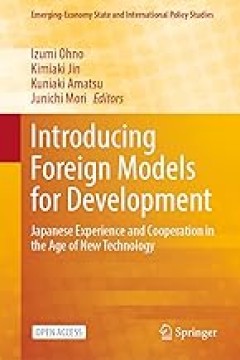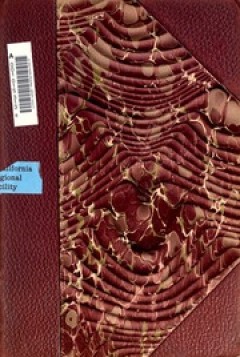Filter by

Innovation in Bayern
- Edition
- 1
- ISBN/ISSN
- 978-3-658-39561-2
- Collation
- -
- Series Title
- 4 b/w illustrations, 8 illustrations in colour
- Call Number
- 978-3-658-39561-2
- Edition
- 1
- ISBN/ISSN
- 978-3-658-39561-2
- Collation
- -
- Series Title
- 4 b/w illustrations, 8 illustrations in colour
- Call Number
- 978-3-658-39561-2

Organization in Biology
This open access book assesses the prospects of (re)adopting organization as a pivotal concept in biology. It shows how organization can nourish biological thinking and practice, by reconnecting with the idea of biology as the science of organized systems. The book provides a comprehensive state-of-the-art picture of the characterizations and uses of the concept of organization in both biologic…
- Edition
- -
- ISBN/ISSN
- 978-3-031-38968-9
- Collation
- VIII, 333
- Series Title
- -
- Call Number
- -

Die Akten des Kaiserlichen Reichshofrats (RHR)
"Der Reichshofrat übte gemeinsam mit dem Reichskammergericht im Namen des Kaisers die Höchstgerichtsbarkeit im Heiligen Römischen Reich aus. Er fungierte darüber hinaus als oberster Lehnshof, als Beratungsgremium des Reichsoberhaupts und als Administrationsorgan der kaiserlichen Reservatrechte in Standeserhebungs- und Privilegienangelegenheiten. Das archivalische Erbe des Reichshofrats w…
- Edition
- 1
- ISBN/ISSN
- 978-3-503-21255-2
- Collation
- -
- Series Title
- -
- Call Number
- 725

Medical Missionaries and Colonial Knowledge in West Africa and Europe, 1885-1914
This open access book offers an entangled history of hygiene by showing how knowledge of purity, health and cleanliness was shaped by evangelical medical missionaries and their encounters with people in West Africa. By tracing the interactions and negotiations of six Basel Mission doctors, who practised on the Gold Coast and in Cameroon from 1885 to 1914, the author demonstrates how notions of …
- Edition
- -
- ISBN/ISSN
- 978-3-031-27128-1
- Collation
- XVIII, 454
- Series Title
- -
- Call Number
- -

'The Bell Curve' in Perspective
This open access book examines the implications of The Bell Curve for the social, economic, and political developments of the early 21st century. Following a review of the reception of The Bell Curve and its place in the campaign to end affirmative action, Professor Tucker analyses Herrnstein’s concept of the “meritocracy” in relation to earlier 20th century eugenics and the dramatic incr…
- Edition
- -
- ISBN/ISSN
- 978-3-031-41614-9
- Collation
- XIII, 124
- Series Title
- -
- Call Number
- -

Researching with Proximity
This open access book presents a series of speculative, experimental modes of inquiry in the present times of environmental damage that have come to be known as the age of the Anthropocene. Throughout the book authors develop more nuanced ways of engaging with the environmentally vulnerable Arctic. They counter distancing, exoticising, and even apocalyptic imaginaries of the Arctic by staying p…
- Edition
- -
- ISBN/ISSN
- 978-3-031-39500-0
- Collation
- XIX, 215
- Series Title
- -
- Call Number
- -

Die Akten des Kaiserlichen Reichshofrats (RHR)
"Der Reichshofrat übte gemeinsam mit dem Reichskammergericht im Namen des Kaisers die Höchstgerichtsbarkeit im Heiligen Römischen Reich aus. Er fungierte darüber hinaus als oberster Lehnshof, als Beratungsgremium des Reichsoberhaupts und als Administrationsorgan der kaiserlichen Reservatrechte in Standeserhebungs- und Privilegienangelegenheiten. Das archivalische Erbe des Reichshofrats w…
- Edition
- -
- ISBN/ISSN
- 978-3-503-21255-2
- Collation
- 725
- Series Title
- -
- Call Number
- -

Introducing Foreign Models for Development
This open access book studies how foreign models of economic development can be effectively learned by and applied to today’s latecomer countries. Policy capacity and societal learning are increasingly stressed as pre-conditions for successful catch-up. However, how such learning should be initiated by individual societies with different features needs to be explained. The book answers this p…
- Edition
- -
- ISBN/ISSN
- 978-981-99-4237-4
- Collation
- XXVI, 338
- Series Title
- -
- Call Number
- -

Fate and Freedom in Korean Historical Films
This open access book examines the depiction of Korean history in recent South Korean historical films. Released over the Hallyu (“Korean Wave”) period starting in the mid-1990s, these films have reflected, shaped, and extended the thriving public discourse over national history. In these works, the balance between fate and freedom—the negotiation between societal constraints and individu…
- Edition
- -
- ISBN/ISSN
- 978-3-031-27267-7
- Collation
- XIX, 255
- Series Title
- -
- Call Number
- -

Memoirs of Duke de Richelieu volume 1
- Edition
- 1
- ISBN/ISSN
- 623553744
- Collation
- cdl; americana
- Series Title
- -
- Call Number
- 920 RIC m
- Edition
- 1
- ISBN/ISSN
- 623553744
- Collation
- cdl; americana
- Series Title
- -
- Call Number
- 920 RIC m
 Computer Science, Information & General Works
Computer Science, Information & General Works  Philosophy & Psychology
Philosophy & Psychology  Religion
Religion  Social Sciences
Social Sciences  Language
Language  Pure Science
Pure Science  Applied Sciences
Applied Sciences  Art & Recreation
Art & Recreation  Literature
Literature  History & Geography
History & Geography